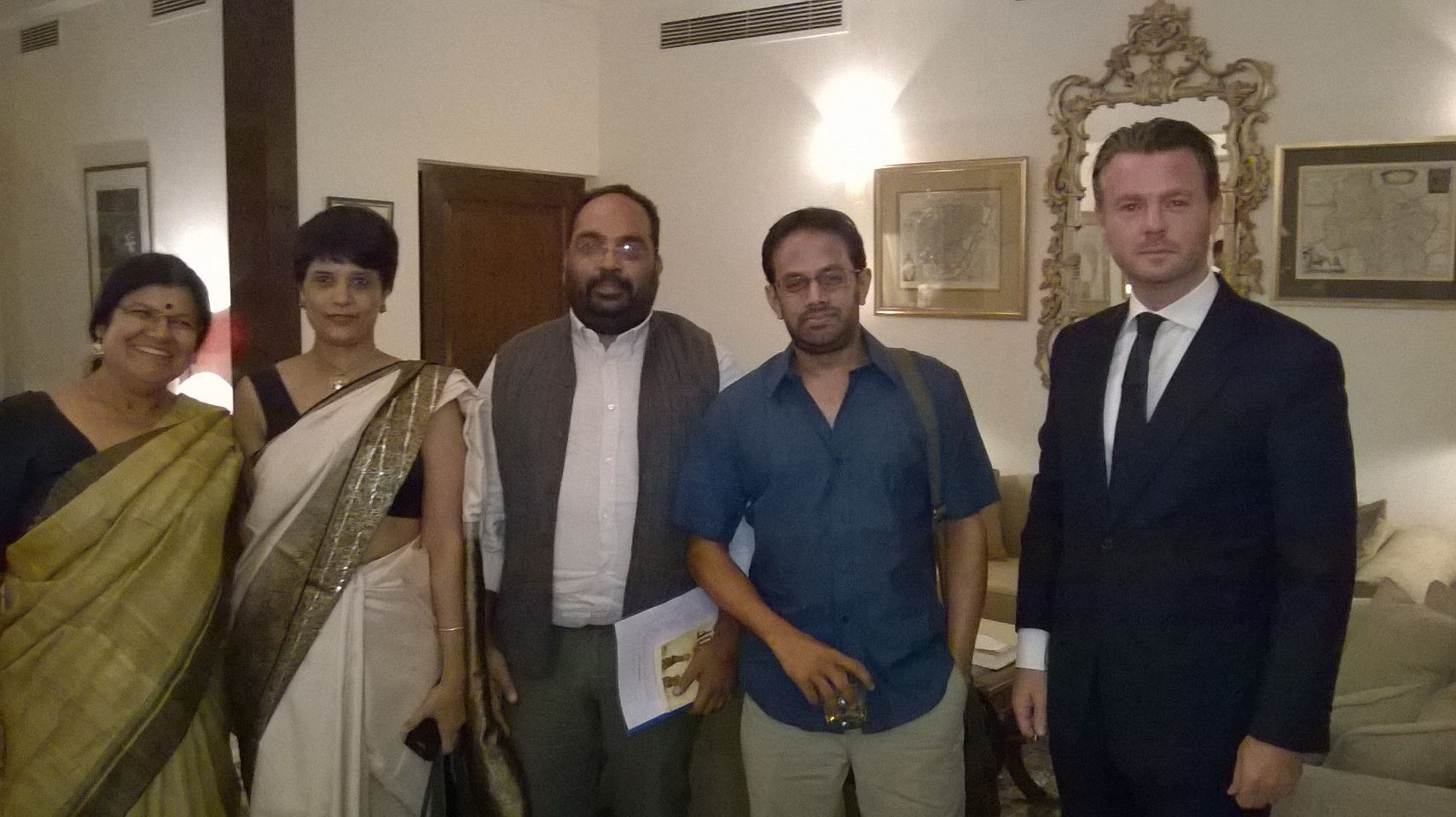Literati: Happy readers ( 2 Nov 2014)
 My monthly column in the Hindu Literary Review was published online on 1 November 2014 and in print on 2 November 2014. Here is the url http://www.thehindu.com/books/literary-review/literati-happy-readers/article6555142.ece . I am also c&p the text below.
My monthly column in the Hindu Literary Review was published online on 1 November 2014 and in print on 2 November 2014. Here is the url http://www.thehindu.com/books/literary-review/literati-happy-readers/article6555142.ece . I am also c&p the text below.
A recent article, “The Percy Jackson problem”, argued that Rick Riordan’s rewriting of Greek myths for a contemporary audience is unacceptable since it lures young readers away from the “classics”. The journalist also did not subscribe to the view that kids should be allowed to read whatever they are reading as long as they are reading! Apparently the huge crowds of youngsters (outnumbering the adults) filling synagogues, theatres, and basketball stadiums to attend the interactions with Riordan, a former middle-school English and history teacher — who is currently on a tour to promote the last book in the Olympians series, The Blood of Olympus — was insufficient evidence that children were happy reading. A publishing colleague sent me a furious response to the article saying that it was mean spirited and unfair given that Riordan has touched thousands of kids’ lives in a positive way and reached many reluctant readers.
New generations of readers are crucial for the survival of publishing. While delivering his acceptance speech at the PEN/Pinter Prize 2014, Salman Rushdie said, “I always believed that the book is completed by the reader that out of the intimacy of strangers created by the act of reading emerges the book as it exists for that reader; and that out of that private act of union comes love, the love of literature, of reading, of that particular book …”
The powerful impact an author can have on a reader, even in a large group, was demonstrated at a literary evening that I curated at the Embassy of Ireland. To commemorate the centenary of World War I, three Indian authors were invited to a panel discussion on “Conflict and Literature”, moderated by the ambassador H.E. Feilim McLaughlin. The authors spoke powerfully of their engagement with conflict and how it has influenced their writing. The audience sat in pin-drop silence. Some wept. Most had lumps in their throat. The topics or narrated experiences touched a raw nerve in many, especially those with direct links with Partition, the 1984 riots and communal conflicts.
Of late there has been a growing debate on how the Internet is cutting into the time of readers. It is estimated that, by 2018, 3.9 billion people will be online; many on smartphones. It is not surprising to discover that Adobe has been collecting data about its customers’ reading pattern. Last week, Nielsen announced that it was expanding its ratings to include all kinds of digital content. The writer-reader relationship is evolving rapidly with the growth of technology. People are operating these devices not just to communicate with each other but also to read articles and books online. Consequently word-of-mouth recommendations will only grow. The relatively new ReadMyStori.com “is a platform that helps authors get readers to read, appreciate and popularise their work”. Authors say that at least 40 per cent of downloads are converted into book sales.
As Tim Parks points out in an NYRB article (June 10, 2014), “The conditions in which we read today are not those of 50 or even 30 years ago, and the big question is how contemporary fiction will adapt to these changes, because in the end adapt it will. No art form exists independently of the conditions in which it is enjoyed.”
An excellent example of such a response to the changing reading environment is Samanvay: IHC Indian Languages’ Festival (November 6-11, 2014), comprising 90 speakers and performers in 20 languages and dialects. The theme is “Translations Transnations” with focus on Indian languages that have a transnational presence like Bangla, Bhojpuri, Chhattisgarhi, English, Hindi, Konkani, Malayalam, Punjabi and Sanskrit.
The effect of storytelling sessions and stress on reading books other than textbooks is also evident in the crowds of happy children that attend Bookaroo: Festival of Children’s Literature (IGNCA, New Delhi, November 29-30, 2014). The youngsters can be seen mobbing authors and illustrators, seeking autographs, asking a zillion questions, offering authors manuscripts to read, listening in rapt attention to the writers, participating in workshops and buying piles of book at the temporary bookstore.
This year, 83 speakers such as Jamila Gavin, Natasha Sharma, The Storywallahs, Vivek Menon, Rui Sousa and Prayag Shukla will participate.
These children are accessing e-books and books in print, but it does not matter as long as they are reading!
2 November 2014





